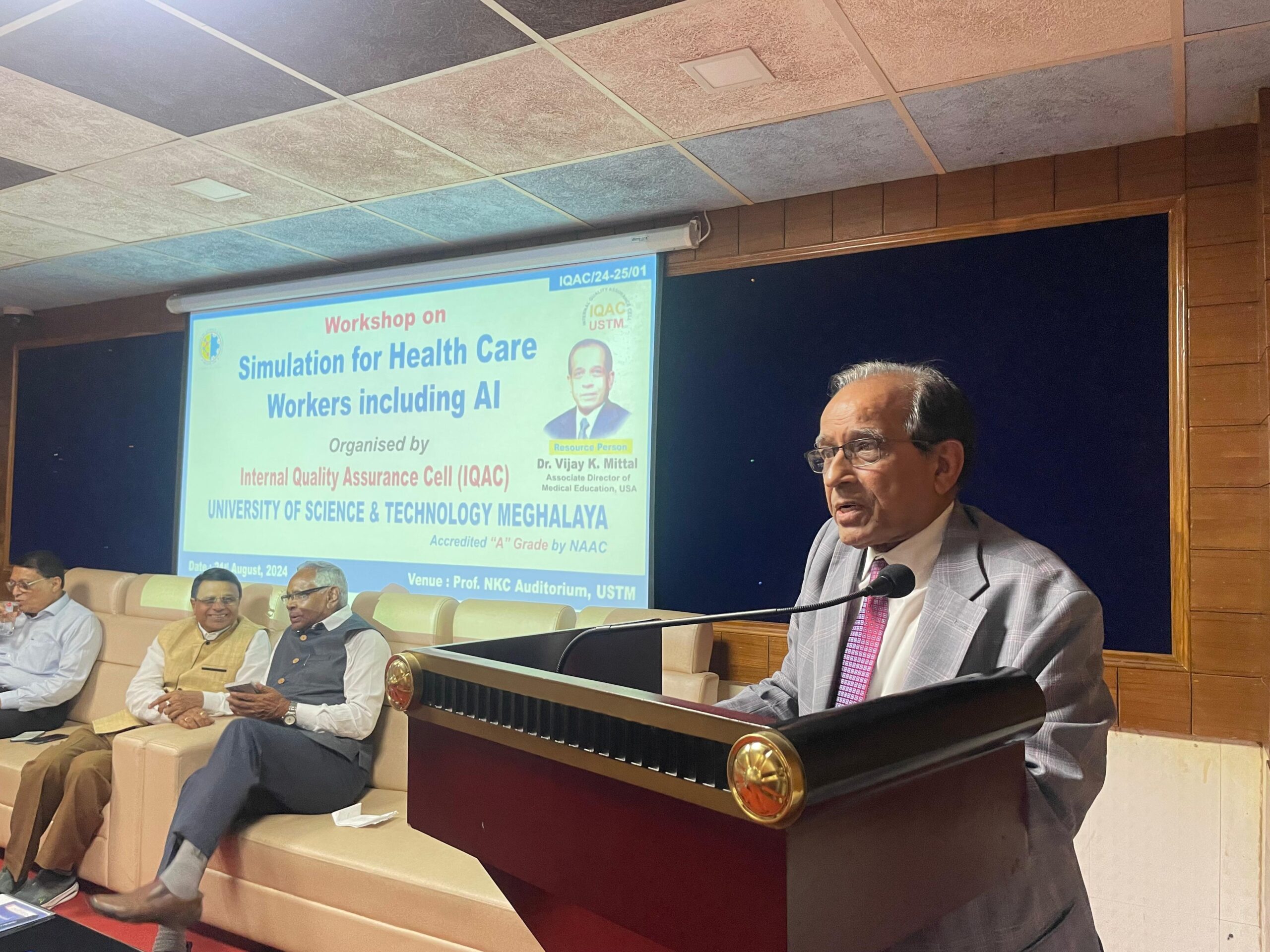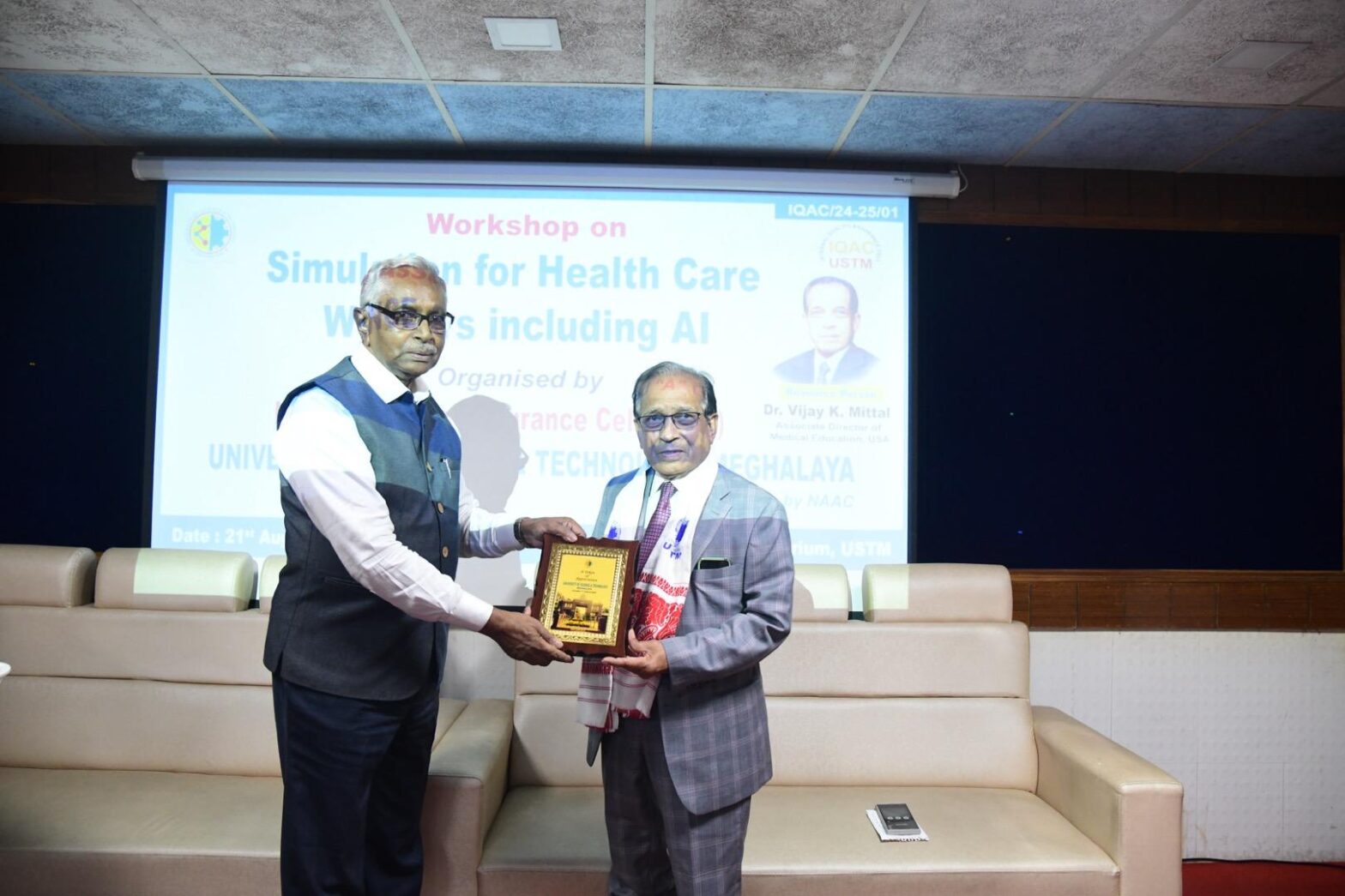9th Mile, Khanapara, Ri Bhoi, August 21, 2024: Dr. Vijay K Mittal, Associate Director of Medical Education, USA has delivered an insightful talk on “Simulation for Health Care Workers including AI” at a workshop organized today by IQAC, USTM at the NKC Auditorium of the University.
The session began with a warm welcome by Padma Shri Dr. Sarbeswar Sahariah, Pro Vice Chancellor of USTM, in the presence of Dr. R.K. Sharma, Advisor USTM, and Dr. B.K. Das, Pro Vice Chancellor USTM, among others. The workshop was attended by over 250 students from USTM, along with staff from PIMC USTM.
Speaking on the occasion, Padma Shri Dr Sarbeswar Sahariah said that introduction of simulation is a great achievement in medical science. “A simulation trained medical professional is very important nowadays. Diagnosis is the most difficult part of medical science, after which appropriate treatment can follow. AI will play a very important role in the coming days in diagnosing patients”, he added.

Addressing the students, Dr. Vijay K Mittal, Associate Director of Medical Education, USA said that simulation is a technique, not a technology, to replace or amplify real experiences with guided experiences that evoke or replicate substantial aspects of the real world in a fully interactive manner. In non- medical community, simulation training is well established in military, aviation, nuclear power, NASA, gaming industry etc.
According to him, healthcare simulations can be said to have four main purposes: education, assessment, research and health system integration in facilitating patient safety. “Simulation technology can be used to improve individual and team performance through interdisciplinary team training. For medical students, simulation makes a paradigm shift in teaching. It is largely used for educational purposes across medical knowledge, patient care, psychomotor tasks, critical thinking and decision making.
The workshop ended with an enthusiastic interactive session between the resource person and the students.

